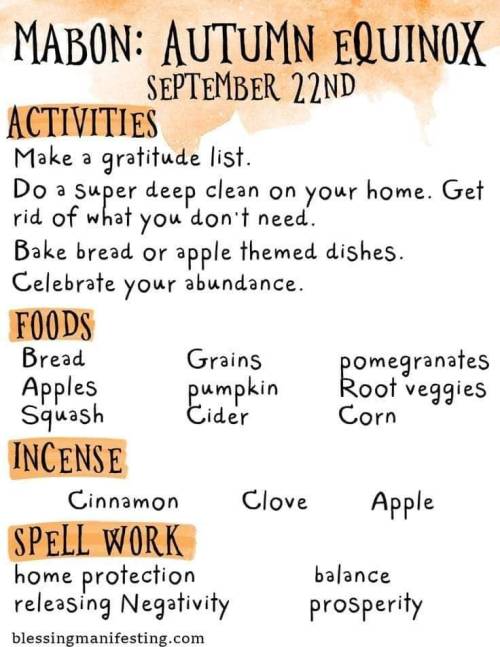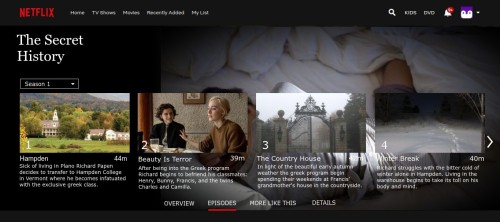GOOD STUDYING VS BAD STUDYING
GOOD STUDYING VS BAD STUDYING
GOOD STUDYING
Use recall. When you look at a passage and try to study it, look away and recall the main ideas. Try recalling concepts when you are walking to class or in a different room from where you originally learned it. An ability to recall—to generate the ideas from inside yourself—is one of the key indicators of good learning.
Test yourself. On everything. All the time. Flashcards are your best friend. Use quizlet if you don’t want to hand-make flashcards. Get somebody to test you on your notes.
Space your repetition. Spread out your learning in any subject a little every day, just like an athlete. Don’t sit and study one subject for 2 hours, do half an hour every day.
Take breaks. It is common to be unable to solve problems or figure out concepts in math or science the first time you encounter them. This is why a little study every day is much better than a lot of studying all at once. When you get frustrated, take a break so that another part of your mind can take over and work in the background. You need breaks in order for your brain to retain the information. Try the Pomodoro method if you have trouble timing breaks!
Use simple analogies. Whenever you are struggling with a concept, think to yourself, How can I explain this so that a ten-year-old could understand it? Using an analogy really helps. Say it out loud, like you’re teaching it, whether it’s to an imaginary class or your sister who couldn’t care less. The additional effort of teaching out loud allows you to more deeply encode.
Focus. Turn off your phone / iPad / any distractions and clear your desk of everything you do not need. Use apps like Forest if you can’t stay off them!
Do the hardest thing earliest in the day, when you’re wide awake and less likely to push it aside.
BAD STUDYING
Avoid these techniques—they can waste your time even while they fool you into thinking you’re learning!
Passive rereading—sitting passively and running your eyes back over a page. This is a waste of time, frankly, and doesn’t do anything to help information pass into your brain without recall.
Over-highlighting. Colouring a passage of text in highlighter isn’t helpful at all. It’s good for flagging up key points to trigger concepts and information, but make sure what you highlight goes in.
Waiting until the last minute to study. DON’T CRAM!!!
Doing what you know. This isn’t studying! This is like learning how to juggle but only throwing one ball.
Neglecting the textbook. Would you dive into a pool before you knew how to swim? The textbook is your swimming instructor—it guides you toward the answers.
Not asking your teachers for help. They are used to lost students coming in for guidance—it’s their job to help you.
Not getting enough sleep. Your brain practices and repeats whatever you put in mind before you go to sleep, as well as retaining information and repairing itself. Prolonged fatigue allows toxins to build up in the brain that disrupts the neural connections you need to think quickly and well.
More Posts from Alittleanxiousbadger and Others
one day, you will be able to say ‘i made it.’ and until then, i really want you to hold on to whatever it is that you dream of.






This tower, patched unevenly with black ivy, arose like a mutilated finger from among the fists of knuckled masonry and pointed blasphemously at heaven. At night the owls made of it an echoing throat; by day it stood voiceless and cast its long shadow.
Mervyn Peake

How To Create Your Own Spells
Dedicated to @a–special–one Thank you so much for asking! I felt like this needed a post all it’s own ^u^
-from my grimoire
I’d like to say before anything else, and as I always say, this is not the only way to do this. There are many different ways to create your own spells, and this is simply the method that I find easiest when teaching beginners. And always remember that when it comes to crafting a spell, your intentions are whats most important.
Gathering Your Thoughts
The first step to creating any spell, is thinking about what kind of spell you want to perform, how you want to perform it, and how you want it to manifest.
Ask yourself some questions. “What kind of spell do I want to make?” “Does this need to be a very specific spell or a vague one?” “What method am I going to use to cast/create the spell?” “How do I want this spell to affect me or the person it’s aimed at?” “What kind of ingredients am I going to need?” “What time of day or moon phase would I like to perform this spell?” Anything along those lines are important questions to ask before you start working on your spell. Write the questions and answers down on paper that way you can keep track of everything!
Types of Spells
The next place you’re going to end up is choosing what kind of spell you want to do. Picking what type of spell you want to do is important because this is what decides how effective it is, how long it’s going to last, and when it’s effect will activate. This is not a list of all the types of spells out there, but simply the types that I do on a regular basis. And as another note, you can totally combine methods as well! This can easily enhance the power of your spells and make your intentions more clear and direct.
Prayer - This is the most simple form of a spell, and best to do if you’re only looking for a little aid rather than something major. A spell like this puts you in the universes hands completely.
Spoken Word - Differing from prayer because this has actual intentions in mind. This is usually a word, phrase, rhyme/lyric, or short paragraph spoken with energy. A spell like this can be very effective depending on how much energy you put into it and how much you actually believe in yourself. If you’re low on supplies and need something solid, spoken word is the way to go.
Incense Spell - An incense spell is usually directed at yourself rather than at another person, though that doesn’t mean it can’t work on another. But these are very temporary spells and only last as long as the burning incense. Usually this kind of spell is used to enhance focus.
Candle Spell - One of the most common types of spell you’re going to see are ones with candles. You can perform this spell on yourself or another person easily, and they’re very fast acting depending on the type of candle you use. When doing this kind of spell, take things like color and size in account.
Crystal Grid - A type of spell work that is done by placing specific crystals in a manner where their energies intermingle and work together to perform a task. This is a spell type that I use on a daily basis to set the mood for the day and keep me energies.
Sigil - A type of drawn magick that puts your intentions of paper. Usually these need to be charged and activated, but once that’s done, they have quite nice effects!
Bottle/Bag Spell - My personal favorite type of spell! These work well if you need a constant effect, and depending on the size of bag or bottle you use can easily be carried with you everywhere. These are very long lasting, don’t need to be charged often, and produce the best effect.
Energy Spell - Probably a more advanced technique, but this is the use of pure energy to put your will into motion. Doing energy spells takes lots of practice and in the early stages can be very unstable in whether they work or not, or whether they’ll completely backfire. This takes patience so don’t give up!
Picking Your Ingredients
Unless you’ve decided on spoken word or prayer alone, you’ll be looking for ingredients next. You don’t need expensive or fancy ingredients, and if you need to you can totally add spices and such from your kitchen ^u^ Think about correspondences carefully, and if you associate something with a feeling or ideal specifically then use it! Things that have personal meanings to yourself can be the most powerful ingredient in any spell.
Here are some of the correspondences I’ve posted about. (If tumblr wasn’t fiddly I would post links, but they’re on my blog in the “My Grimoire” and “My Tips” pages) Herbs and Spices Incense and Oils Common Crystals Colors Flowers Feathers (be mindful of the feathers you pick up, some could get you in legal trouble!)
When To Cast
Once you’ve got all your ingredients together, next thing you’re gonna wanna sit down and figure out when you want to cast your spell. This isn’t always a necessary part, and most spells can be done whenever you feel like, but taking things like Time of Day or the Current Moon Phase into account can really add to (or even take away from) the power of your spell
Here are some simple correspondences for Moon Phase and Time of Day. (I’ll go more in depth in a separate post if enough people show interest)
Moon Phases
New Moon (when there is only the tiniest sliver) - Good for sowing the seeds of new ideas
Waxing Moon - Good for healing, and growing ideas
Full Moon - Best time to perform any sort of spell
Waning Moon - Good for cutting things out of your life
Dark Moon (when the moon is not visible) - Take this time to rest and focus on yourself
Time of Day
1am-3am - Good for communicating with spirits
4am-6am - Good for planting new ideas and fertility
7am-9am - Best time to make offerings to deities or local spirits
10am-12pm - Best time for positivity and growth
1pm-3pm - Good to focus on yourself and your studies
4pm-6pm - Time to harvest and be with family
7pm-9pm - Best time to cut things out of your life
10pm-12am - Good for any magickal workings
Like I said earlier, this stuff isn’t necessary unless you really want that extra ‘umph’ in your magick, so don’t feel like you have to plan it down to a T especially if you’re in a hurry. Only plan if you want to and have the time to.
Organizing and Casting
How are you going to cast the spell? That’s probably one of the hardest parts you’re going to come across if you’re new to spell crafting. You want to think about this part carefully so you get maximum results. I can give some tips ^u^
If you’re combining methods, think about what order you want to put them in. Organize them in a way that flows naturally.
Practice your spell! Set up a play scenario and rehearse your spell a few times to make sure you get it right, and the whole process goes smoothly.
Don’t be afraid to make a mistake though, mistakes are part of life and they always tend to happen when you want them to the least. If your spell doesn’t go perfectly the way you imagined, that’s okay. Intention is what matters.
Keep all your spells in a file or in a book. Keeping records of spells is important if you ever intend to use them again, write everything down from ingredients to how you cast
Dont be afraid to experiment! Especially with random things, that’s how you make your own associations. Making your own associations is how you make a spell even stronger!
Lastly, don’t feel obligated to get fancy or over the top. Spoken word spells can be just as effective as a bottle spell, especially if it’s said every day.




if the secret history was a netflix show
i made this over a year ago and it’s just been sitting in my drafts so here you go
“There’s some good on this world - and it’s worth fighting for.”
— J.R.R. Tolkien, The Lord of the Rings: The Two Towers (via amargedom)

✨Crystal Cleansing 101✨

how to write that 17-page essay that’s high-key giving you anxiety
so it’s 4am and you’ve had three cups of coffee but you’ve only written two sentences. you look at the prompt and find it has ceased to make sense. “how the fuck am i gonna turn this into a 17-page paper” you ask.
never fear! your friendly neighborhood college fuckup is here with an answer. buckle down and get another cup of coffee; you’re in this for the long haul. (literally. this post got long because i’m apparently incapable of writing short posts, but i also pulled a 3.9 cGPA using this method so i’d say it’s worth the read.)
first, a cheat: email your professor and ask if you can use subheaders. subheaders eliminate the need for smooth transitions between portions of your argument and also create a ton of white space, which can help you reach page count.
second, a tip: don’t be afraid to meet with your prof. this essay probably isn’t a take-home exam; it’s likely that your prof set this paper to give you a chance to learn and write about something you enjoy. shoot your prof an email saying “hey, this is what i’m thinking, this is what i’m struggling with, can i meet with you to talk it out?” 9 times out of 10, your prof will say yes. if they say no, talk to another prof in the same discipline. otherwise talk to your uni writing center or a friend of yours. worse come to worst, shoot me a message.
what you’re gonna do now is outline the fuck out of your paper to procrastinate actually writing it.
step 1: take apart the prompt. it’ll be asking for a few different things; mark these things with different cues: brackets, underlining, different colored pens, whatever. this structures your response.
if you don’t know your thesis yet, that’s fine! let it develop naturally as you conduct your research and plan your argument. you can change it as you go - that’s the point of researching the topic. no one will know what your first draft thesis was.
step 2: look at the dismembered prompt. write bullets with brief explanations for how you’ll attack each part of the prompt. these can be detailed or as vague as “look up that one reading and use it as a counter argument.” then figure out the best way to organize the bullets. if nothing makes sense, that’s fine too. you can write each chunk of your argument and structure it later.
these bullets make good subheaders. js.
step 3: under each bullet from step 2, list out what info and evidence you need for that aspect of your argument. don’t worry about details yet; focus on structure. write these bullets as though you’re talking to a friend about what your argument is and why is works. let it be stupid. let it be simple. say shit like “freud was a bitch and i can prove it.”
step 4: now that you have a rough draft of your outline, go back and fill in the details. remember, you’re still outlining! you’re basically redoing step 3 with the bullets you made in step 3. this is the part where i take the most time and put in the most effort.
i tend to reach page/word count easily if my outline is half the length the paper needs to be, so i keep outlining until i reach that point. this ratio might be different for you. if you can figure out your ratio, it can tell you if you need to look for more info or if you’re good to go.
make a note of what you’re citing but don’t worry about actual citations. i like using gdocs because you can easily paste a link to your source in a comment. this way, the sources don’t clutter up your doc or artificially inflate your page or word count.
be silly! be stupid! use swear words and memes and internet lingo. you’re just outlining right now; you don’t need to sound smart and professional. you should be focusing on what you want to say, not how to say it.
by the end of this process, my outline is basically my paper in bulletpoint format, without any fancy jargon or quotes or cited evidence, and usually not in complete sentences. i’ve essentially tricked myself into writing my paper by saying “i’m just outlining, it doesn’t really matter.” it’s also less daunting to write the rest of the paper when you know you already have 9 pages done instead of 0.
step 5: write the damn thing! open a fresh doc for your paper and view it side-by-side with your outline. now you get to make your bullets sound pretentious and academic. insert quotes and other evidence. turn “freud was a bitch” into “freud knowingly perpetuated several falsehoods for the sake of his personal gain, thereby undoing decades of progress in the field of psychology.”
don’t worry about citations right now, though! do what you did in your outline and insert the citations as comments at the points where they need to be. creating citations will interrupt your flow.
step 6: once your paper is done, go back and add citations! this can take up to an hour depending on how many sources you have, so budget your time appropriately.
holy shit! you just wrote a whole damn paper! i’m proud of you, buddy. go buy yourself a milkshake and take a nap.


"Dancing in a swirl,
Of golden memories,
The loveliest lies of all,
The loveliest, lies of all."
-
 imperatornumidicus liked this · 2 months ago
imperatornumidicus liked this · 2 months ago -
 wisterialunar liked this · 3 months ago
wisterialunar liked this · 3 months ago -
 chrysalis-the-butterfly liked this · 4 months ago
chrysalis-the-butterfly liked this · 4 months ago -
 roxypearl1 liked this · 5 months ago
roxypearl1 liked this · 5 months ago -
 strangehdangeh liked this · 6 months ago
strangehdangeh liked this · 6 months ago -
 crazybrightbouquet liked this · 8 months ago
crazybrightbouquet liked this · 8 months ago -
 coffeee-n-shit liked this · 9 months ago
coffeee-n-shit liked this · 9 months ago -
 v1rafever liked this · 9 months ago
v1rafever liked this · 9 months ago -
 kittyhawkbombardier-bitch liked this · 10 months ago
kittyhawkbombardier-bitch liked this · 10 months ago -
 largata-azul liked this · 10 months ago
largata-azul liked this · 10 months ago -
 venusandtheneptunes liked this · 11 months ago
venusandtheneptunes liked this · 11 months ago -
 znisholx liked this · 11 months ago
znisholx liked this · 11 months ago -
 swirlspill-study reblogged this · 1 year ago
swirlspill-study reblogged this · 1 year ago -
 iscurrentlyreading liked this · 1 year ago
iscurrentlyreading liked this · 1 year ago -
 jungwonsgfs liked this · 1 year ago
jungwonsgfs liked this · 1 year ago -
 pinkheichou liked this · 1 year ago
pinkheichou liked this · 1 year ago -
 studiouschica liked this · 1 year ago
studiouschica liked this · 1 year ago -
 katanra liked this · 1 year ago
katanra liked this · 1 year ago -
 thedarkacademic16 liked this · 1 year ago
thedarkacademic16 liked this · 1 year ago -
 marysmirages liked this · 1 year ago
marysmirages liked this · 1 year ago -
 bookmac95 liked this · 1 year ago
bookmac95 liked this · 1 year ago -
 mynameissindi reblogged this · 1 year ago
mynameissindi reblogged this · 1 year ago -
 mynameissindi liked this · 1 year ago
mynameissindi liked this · 1 year ago -
 kingtingknowizskim liked this · 1 year ago
kingtingknowizskim liked this · 1 year ago -
 fromthe2016 reblogged this · 1 year ago
fromthe2016 reblogged this · 1 year ago -
 idkwhat00sblog liked this · 1 year ago
idkwhat00sblog liked this · 1 year ago -
 dinahjane97 liked this · 1 year ago
dinahjane97 liked this · 1 year ago -
 ra-bbit reblogged this · 1 year ago
ra-bbit reblogged this · 1 year ago -
 ra-bbit liked this · 1 year ago
ra-bbit liked this · 1 year ago -
 sumbissivelittledevil liked this · 1 year ago
sumbissivelittledevil liked this · 1 year ago -
 lunarsplush liked this · 1 year ago
lunarsplush liked this · 1 year ago -
 unkaketo liked this · 1 year ago
unkaketo liked this · 1 year ago -
 classicstellar liked this · 1 year ago
classicstellar liked this · 1 year ago -
 neuvis-beloved-one liked this · 1 year ago
neuvis-beloved-one liked this · 1 year ago -
 02study reblogged this · 1 year ago
02study reblogged this · 1 year ago -
 sillyism liked this · 1 year ago
sillyism liked this · 1 year ago -
 unnecessaryrainbow liked this · 1 year ago
unnecessaryrainbow liked this · 1 year ago

170 posts